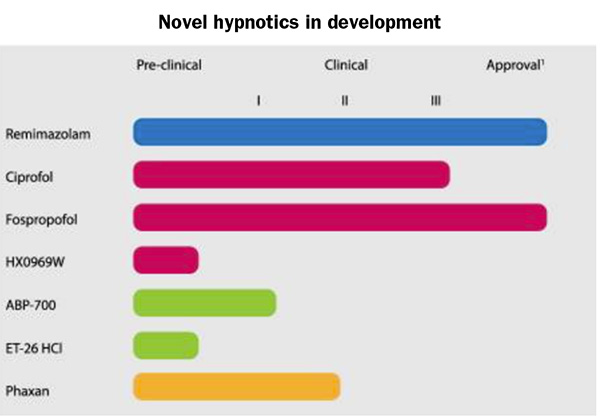Kidney transplant performed on awake patient

Editor's Note In a first for Northwestern Medicine, surgeons performed a kidney transplant on an awake patient, CBS News reported June 24. John Nicholas, 28, of Chicago, experienced no pain during the May 24 procedure, in which he received an organ from a childhood friend. He was discharged the next…
Wearables could help surgeons maintain healthy posture during lengthy procedures

Editor's Note Wearable technology is a useful means of mitigating the risk of musculoskeletal disorders in surgeons by providing biofeedback on posture during lengthy operations, according to a recent study in Journal of Nuerosurgery: Spine. In an April 22 report, AZO Sensors details how researchers from Baylor College of Medicine collaborated with…
Anesthesiologists push to improve pain control during caesarean delivery

Editor's Note A letter to the editor published April 10 in Anesthesiology, the official publication of the American Society of Anesthesiologists (ASA), calls attention to an official statement outlining best practices for ensuring all moms-to-be receive adequate pain management during planned or unexpected C-sections. The best practices are outlined in…
FDA warning: unapproved topical analgesics potentially dangerous

Editor's Note The US Food and Drug Administration (FDA) advises consumers to avoid topical analgesics marketed in violation of federal law by six different companies, including: TKTX Company: TKTX Numb Maximum Strength Pain Reliever, Mithra+ 10% Lidocaine, TKTX During Procedure Numbing Gel 40% and J-CAIN cream [LIDOCAINE] 29.9% SeeNext Venture,…
Two-question survey could help improve pain management, reduce opioid use

Editor's Note A simple, two-question survey could help identify patients most likely to develop chronic pain during recovery from surgery or injury and direct them toward proactive, holistic services that reduce reliance on opioids. NEJM Catalyst published the findings on March 20. Conducted by a research team from Duke University,…
Procedural sedation analgesia considerations for ASC leaders

The promise of quicker recovery and fewer complications from sedation, anesthesia, and pain management have drawn clinicians and patients alike to procedures performed in ambulatory surgery centers (ASCs) and other outpatient settings. However, sedation, anesthesia, and analgesia add their own risks to those of the procedure itself. Understanding the latest…
Safe postop patient recovery: A day in the PACU leader role

Critical assessment and rapid response are essentials skills for perioperative staff members, and that goes double for perioperative leadership. Patient-centered leadership is a must. Like the OR, the postanesthesia care unit (PACU, formerly referred to as the “recovery room”) is a critical care area plagued by an influx of new…
Analgesic clinical trials failing to assess movement-evoked postoperative pain

Editor's Note Most surgical studies still do not report movement-evoked postoperative pain despite the recommendations of expert consensus groups, according to findings published November 27 in Anesthesiology. Researchers came to essentially the same conclusion upon re-evaluating the assessment of pain at rest and movement-evoked pain in 2011. In this updated…
Study questions use of fusion surgery for treating sacroiliac joint pain

Editor's Note A recent double-blind, randomized controlled trial could not prove that minimally invasive sacroiliac joint fusion was any more effective than sham surgery in treating severe sacroiliac joint pain. “With these findings, there should be discussion in the medical community whether an irreversible surgical procedure with related risks and…
Study: Intrathecal morphine reduces post-op opioid need in open prostate, kidney surgeries

Editor's Note A recent study suggests a single dose of intrathecal morphine provides long-lasting analgesia and reduces the need for postoperative systemic administration of opioids after painful open urological procedures. The Journal of PeriAnesthesia Nursing published the data January 31. Intrathecal opioid administration is an attractive technique in these surgeries…

 Free Daily News
Free Daily News